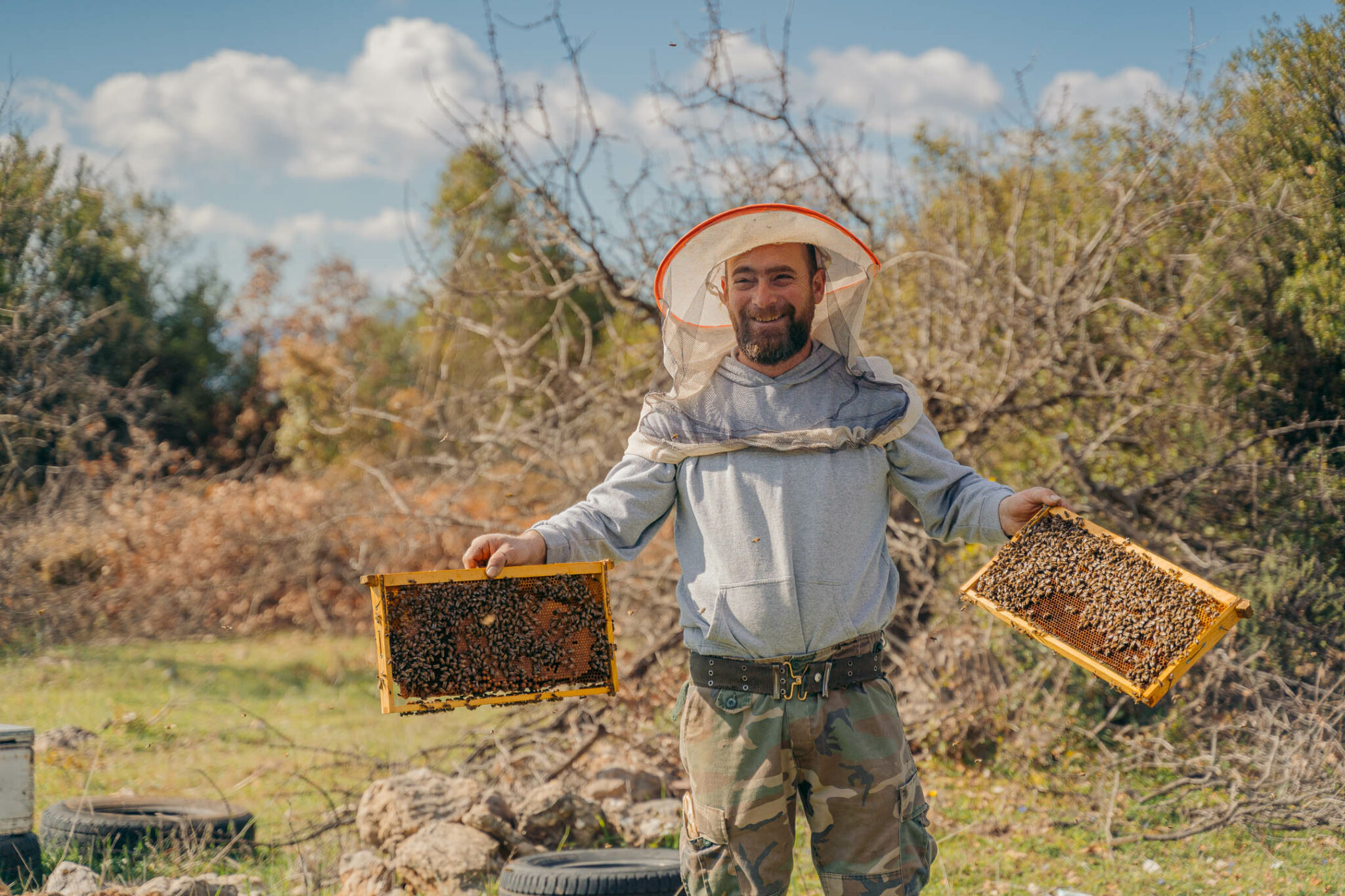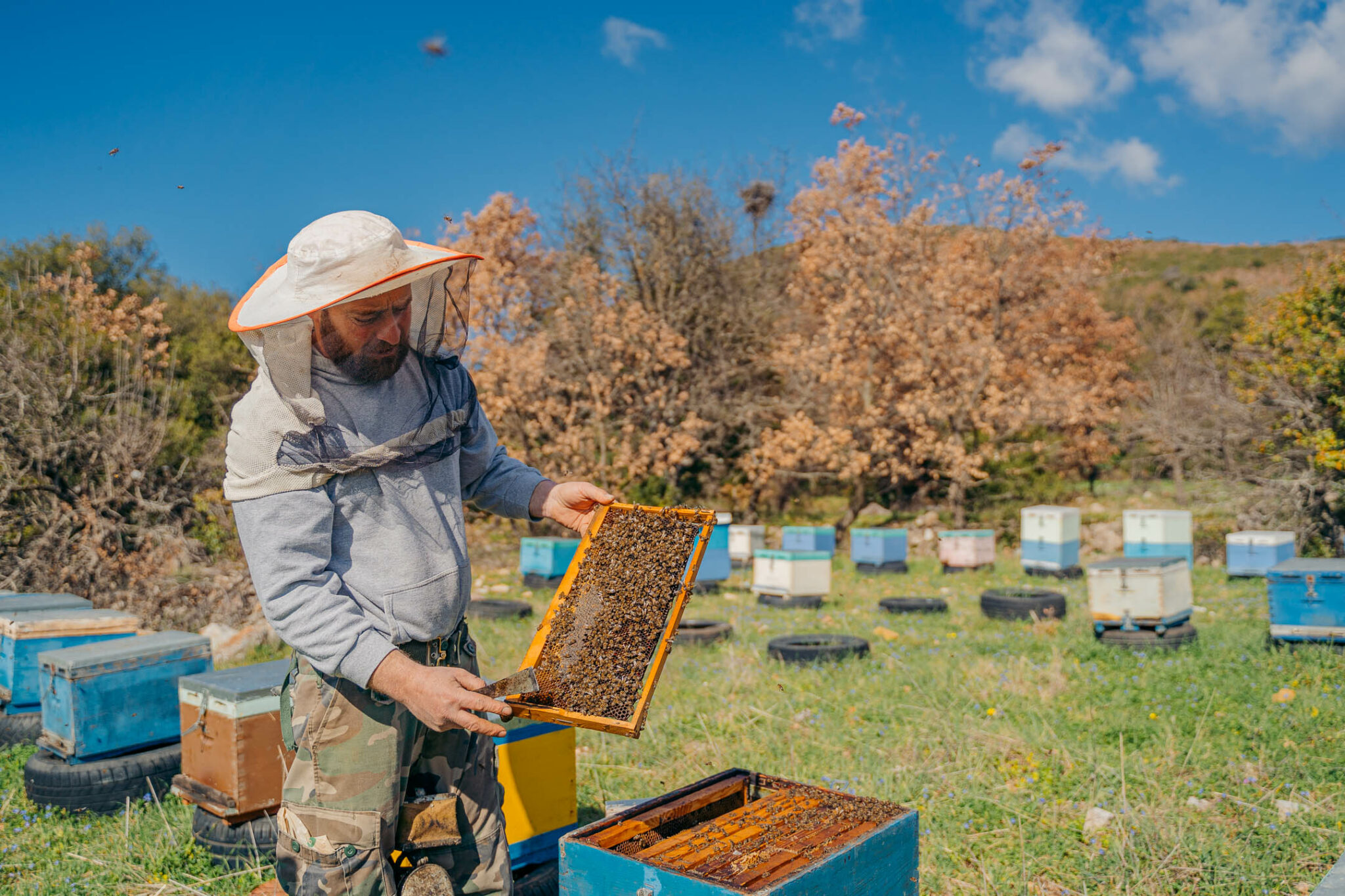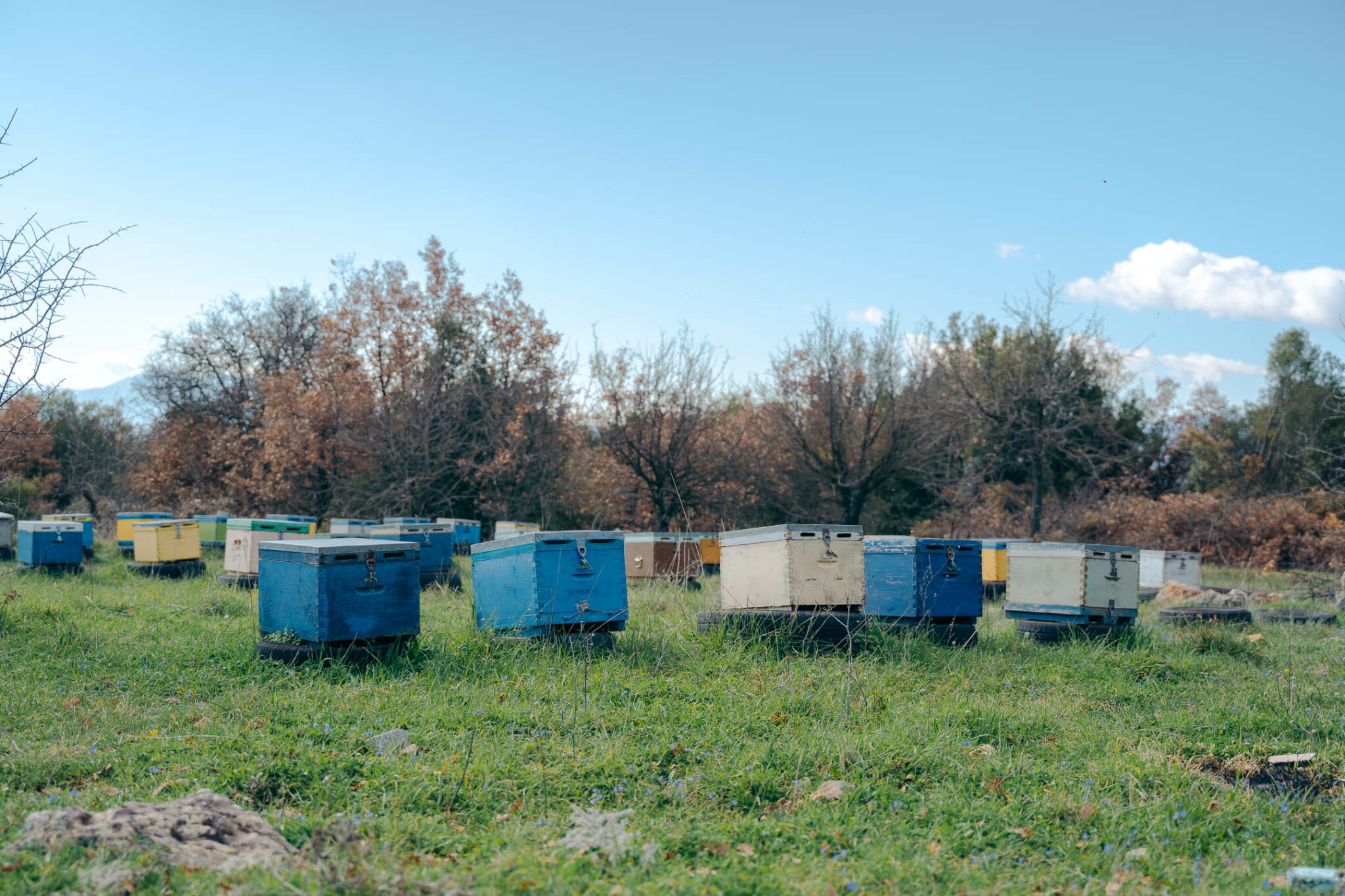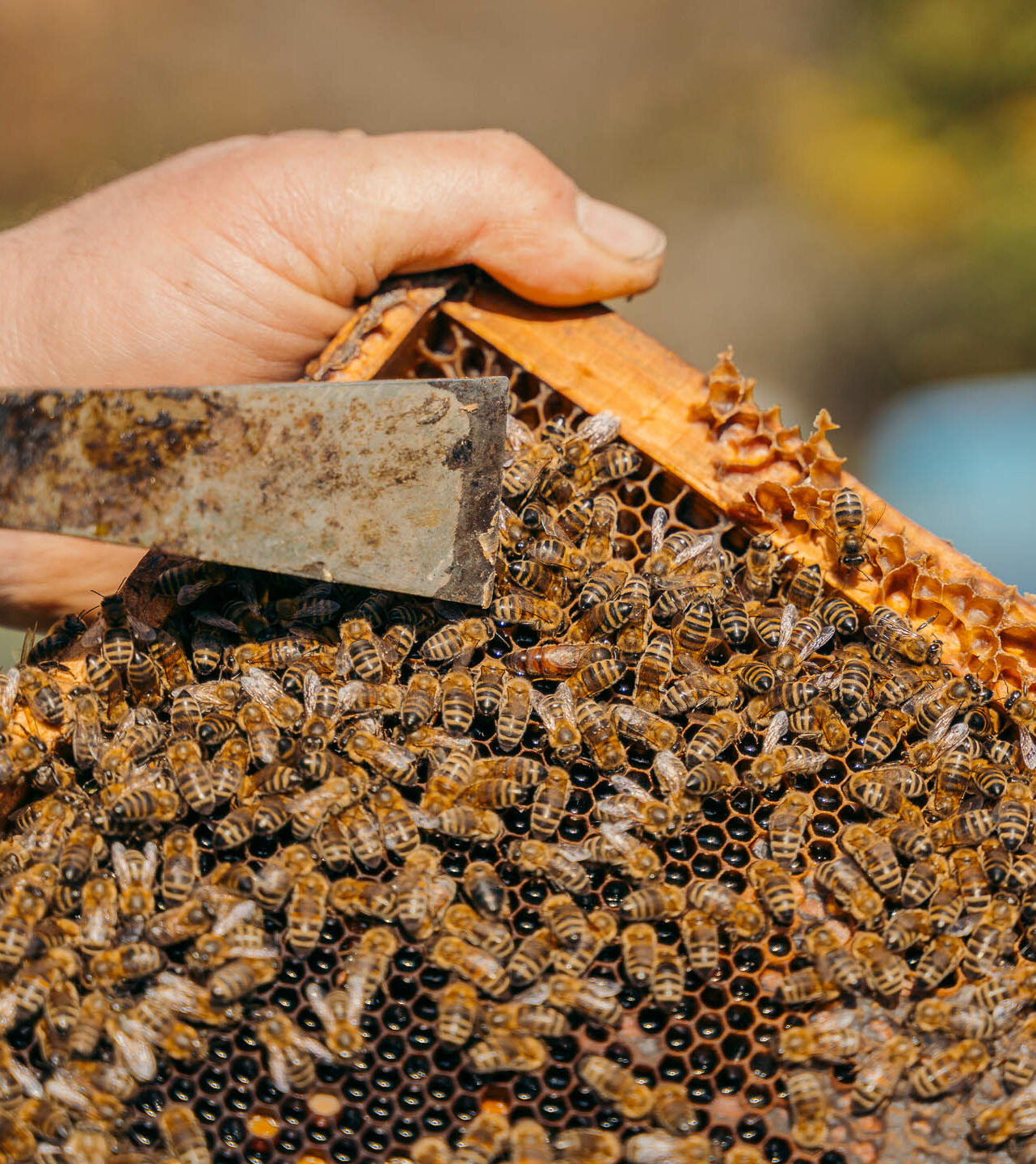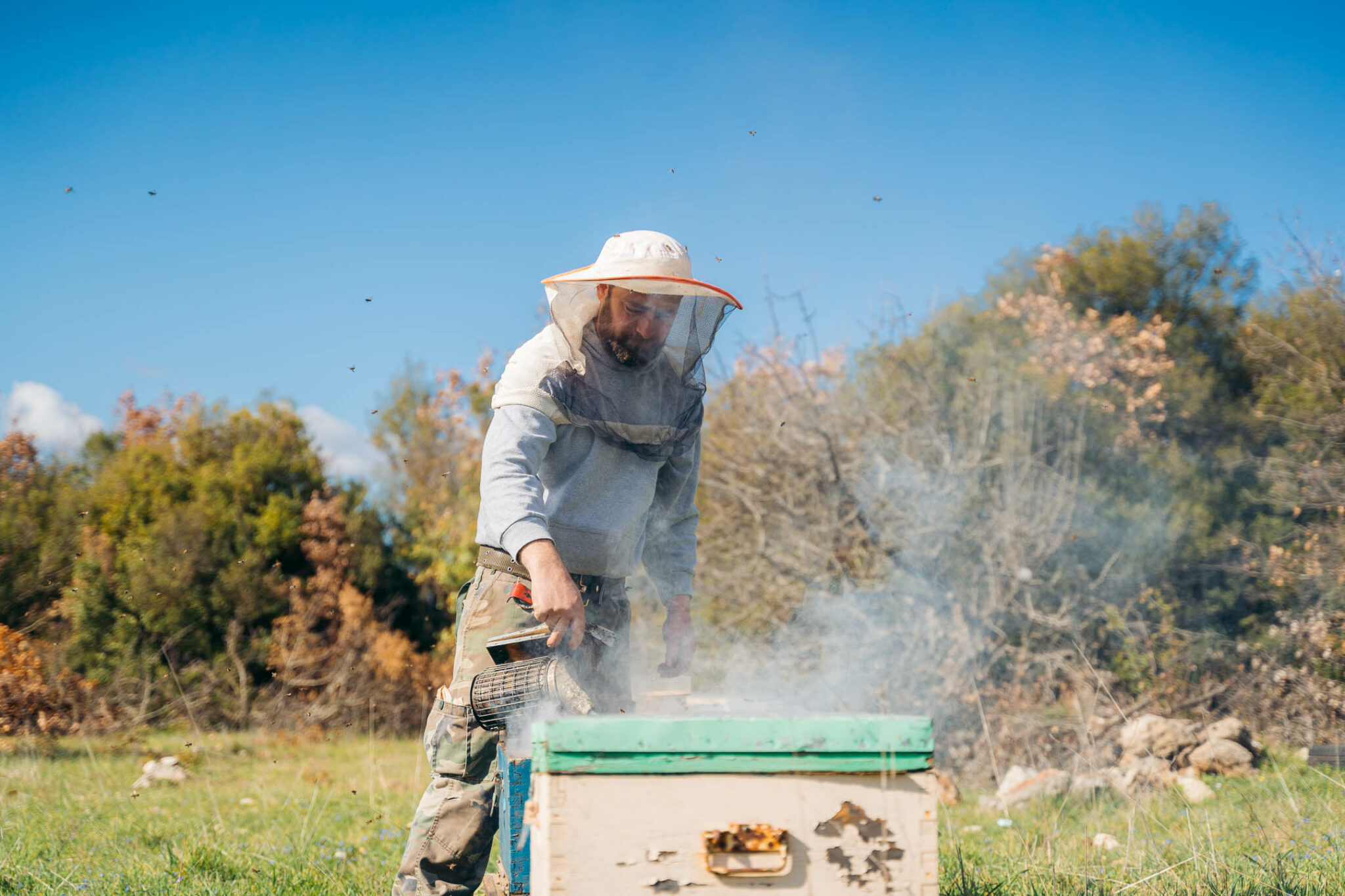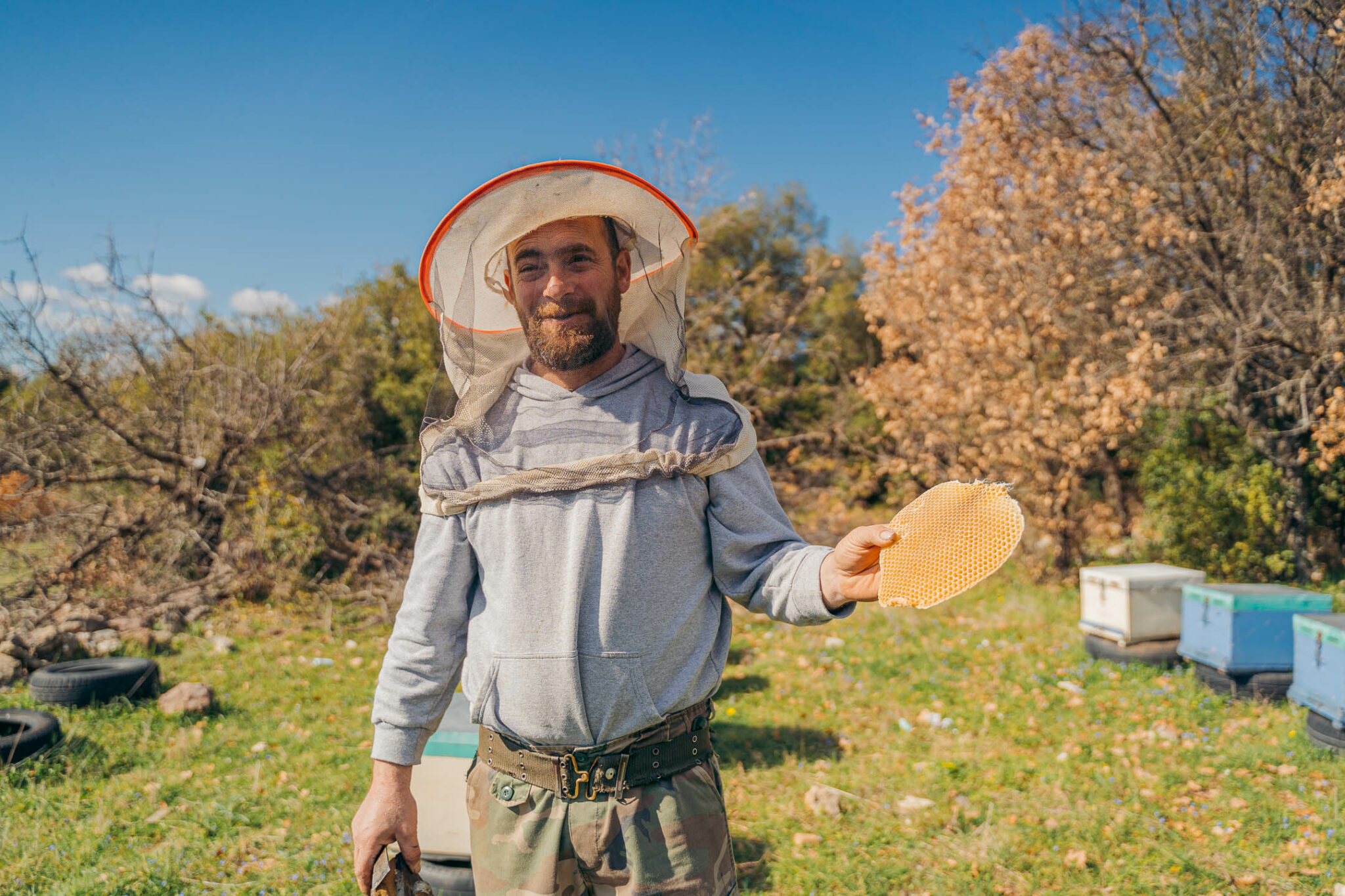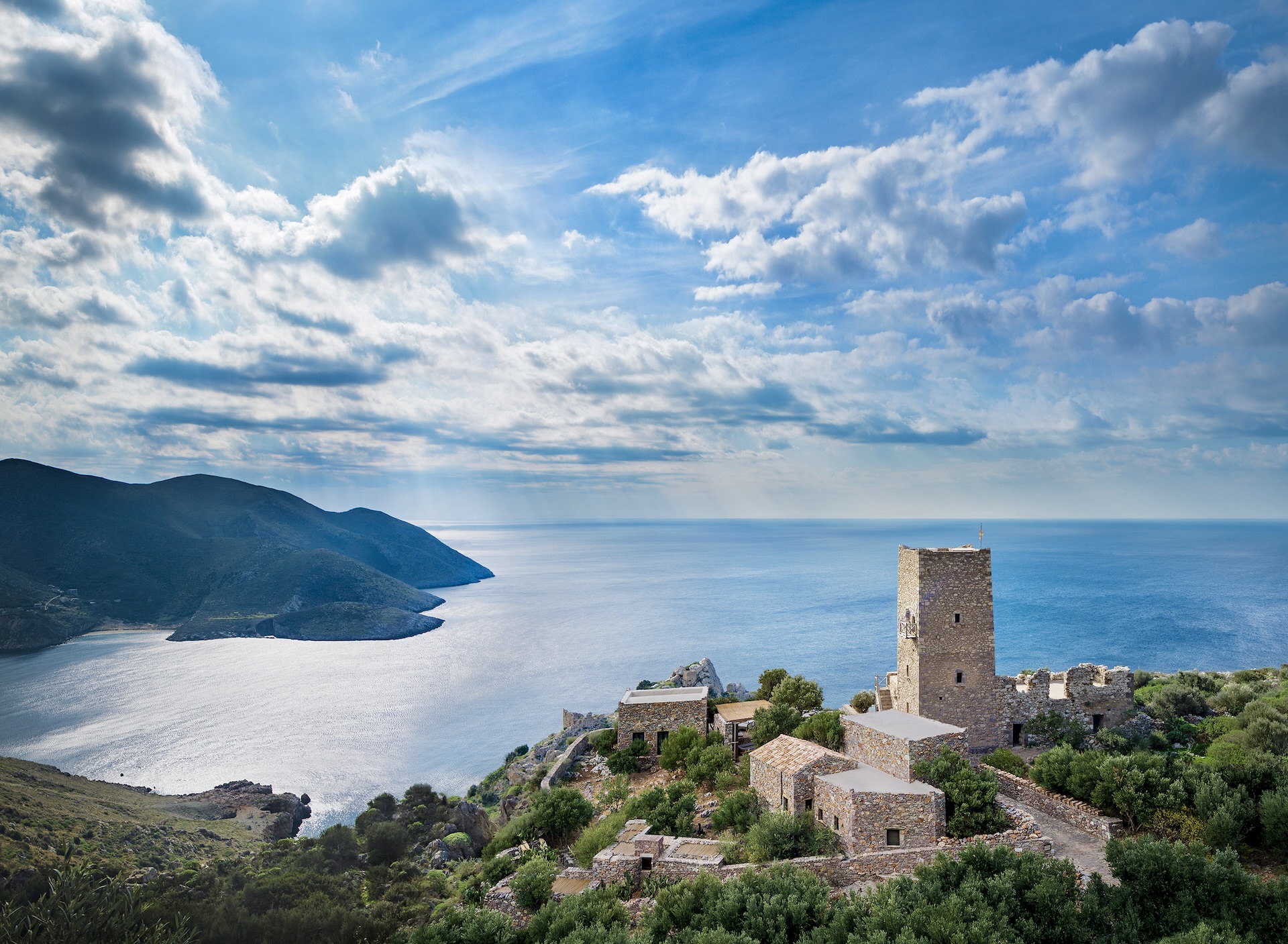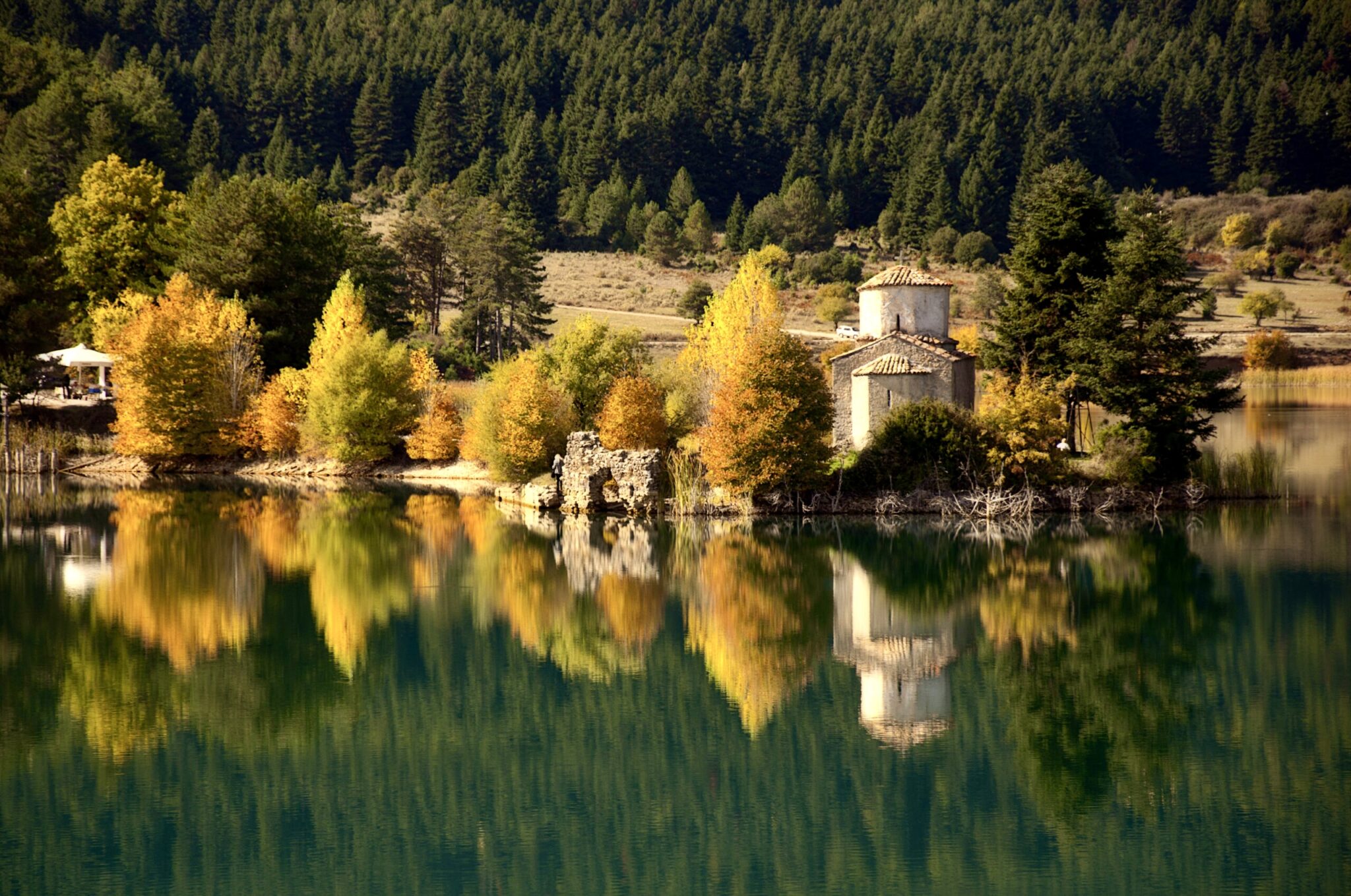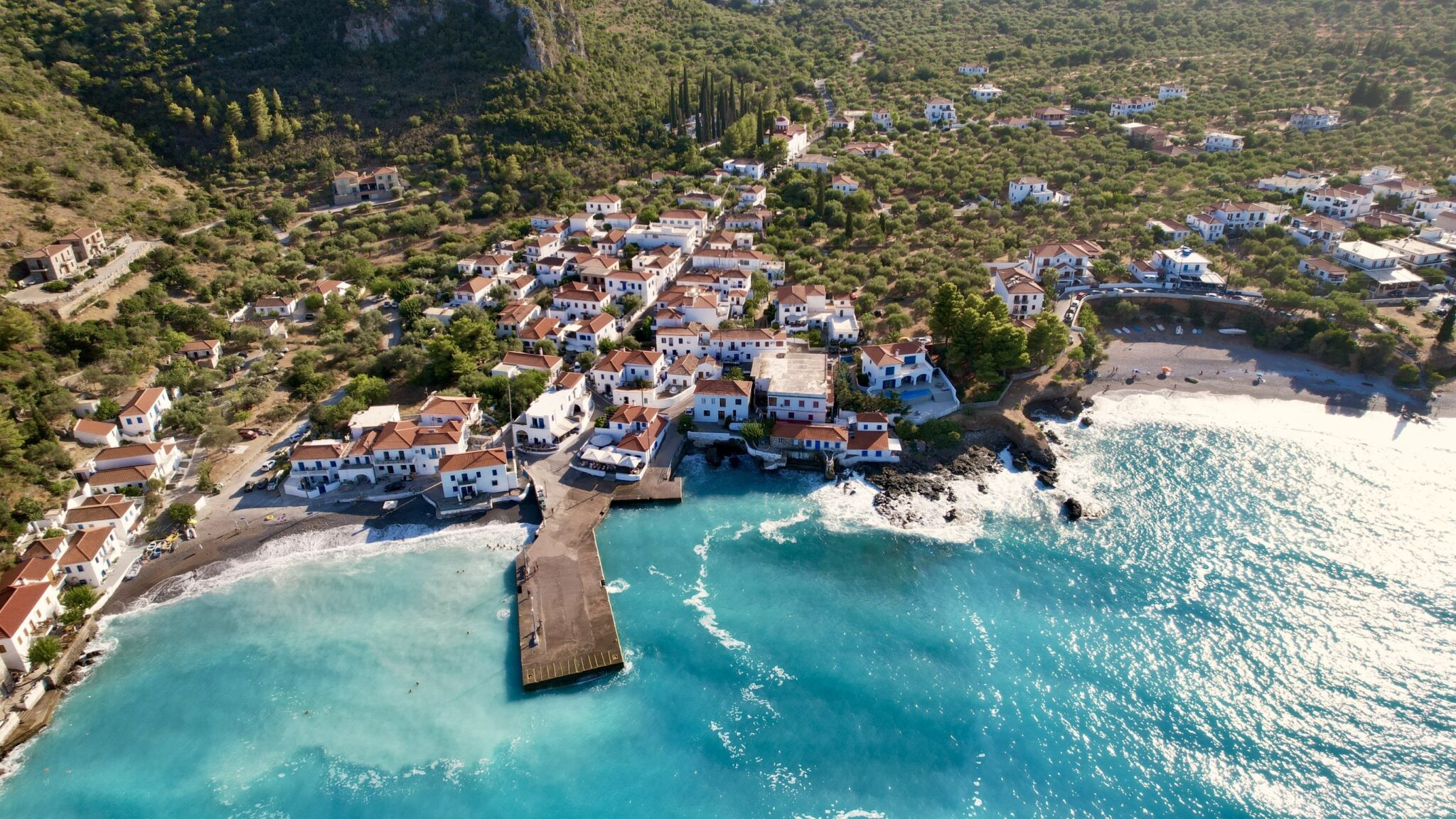On our way from Ancient Gortyna towards Elliniko in Arcadia, we came across a white van parked in the middle of the road. Someone had gotten out and was cutting some branches. “One second, and I’m out of the way,” he said and carried on. “What do you need the branches?” we asked him. “I need them to smoke the bees.” And of course, we didn’t let this chance get away. We chatted with him, right there, in the middle of the road, and he invited us to see the hives and the whole process of smoking them.
“Is anyone allergic to bees?” was the first thing he asked us, and after we replied that no, he told us he had two masks, and we could go with him. We changed our schedule, decided to go to Elliniko later, and followed our new friend, beekeeper Giorgos Biris, down roads that are not even on the satnav. We passed a stable with sheep and a dozen sheepdogs, went on a downhill road with the valley of Megalopoli in the horizon, and then got on a narrow road that seemed to only ever have Giorgos’ car cross it, and we were there.
Within nature since childhood
We parked at a place where there were no hives nor bees. “Come with me, there’s a bit of a walk,” Giorgos said, who, apart from being a beekeeper, is also a farmer, tending to olive groves. “I’ve been in nature since childhood. I come from a family of farmers, and I like utilizing nature’s potential,” Giorgos told us on our way to the hives.
Wearing the masks
We got closer, already wearing our masks, and Amalia tried to figure out how to take pictures while wearing the protective gear. Giorgos prepared the bee smoker. He lit a fire using the branches we saw him picking earlier. He placed them in a metal device and set them on fire. “The smoke will relax the bees and prevent them from becoming aggressive.” He opened the hives carefully and took one of the frames out. Hundreds of bees were hard at work, oblivious of our existence. “When the bees are busy inside the hive, they are not aggressive,” Giorgos told us as he looked for the queen bee. “The queen only eats royal jelly and is the largest bee in every hive. Her sole purpose is to lay eggs and she is the one to ensure the bee line continues.” As we discussed the bee community and their organisation, many very interesting points came up. However, still on the issue of the queen, it’s very interesting that she leaves the hive only to mate. She usually mates with two drones and is not escorted by the worker bees. This is a way for the queen to prove her worth, if she doesn’t survive, another, stronger and more worthy bee will become queen. After this mating trip, the queen returns to the cell, where the smaller and more resilient worker bees will only allow her to pass if she has been fertilised. After this, the queen can lay eggs, depending on the weather, until the end of her life, without needing to mate again. The drones won’t be able to enter the hive again after mating and are destined to die.
The workers
Our discussion around bees continued, and Giorgos gave us valuable information. “The workers work inside the hive until the 20th day of their existence, and after the 20th and until their death, they turn into gatherers, collecting nectar, pollen, propolis and water. We learned about collecting the honey, and he showed us when a hive is ready for harvest and we also talked about the importance of bees in evolution. We let him continue his work that would take many hours, as he needed to carefully check each hive and do whatever is necessary.
The honey
The next morning, we met Giorgos in Dimitsana and tried the honey he makes, that is sourced from various locations in the Peloponnese. “Depending on the season and the blooming we move the hives to various locations, in the Peloponnese, Evia and elsewhere.” We left Giorgos sure that he’s passionate about what he does and puts in the time and labour to do it well. Honey is not just another product, honey is valuable.
Giorgos Biris, beekeeper. Tel.: 0030 6977975855
Read also:
Leading hotels in mountainous Arcadia region
The best taverns in the mountain villages of Arcadia
6 quality food and drink spots in Peloponnese mountain villages Vytina, Dimitsana



